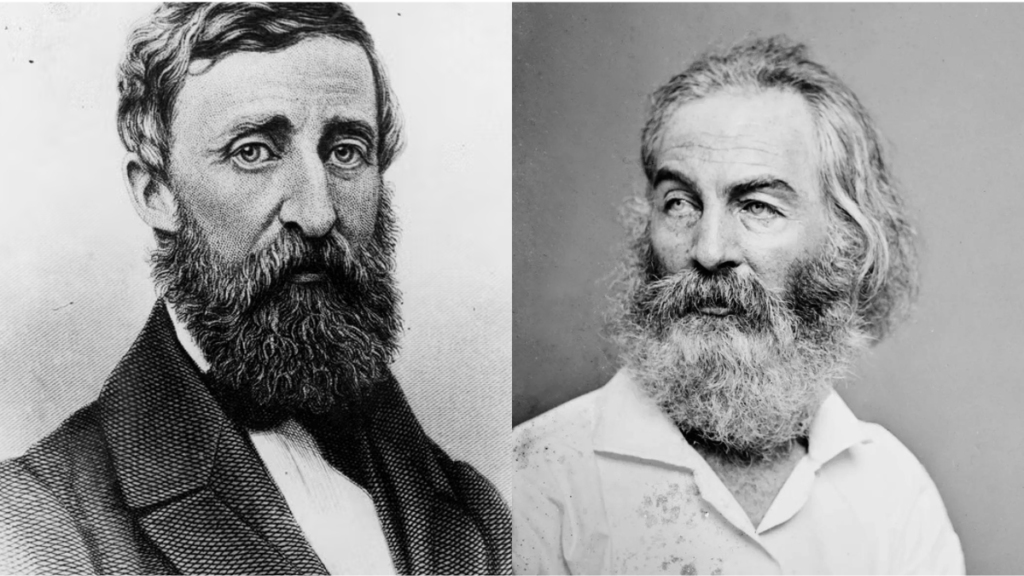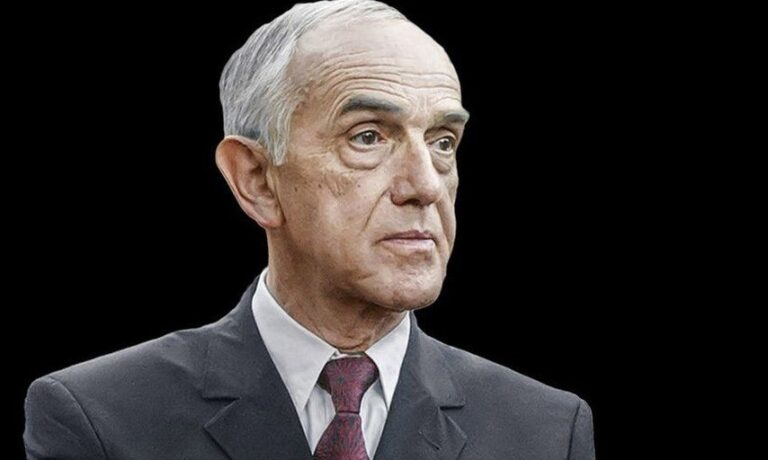Influence of Walt Whitman and Henry David Thoreau
Influence of Walt Whitman and Henry David Thoreau are two of the most influential figures in American literature and philosophy. Their works have left an indelible mark on how we understand individuality, nature, and the self. Despite their differing approaches and philosophies, both Whitman and Thoreau shared a deep reverence for the natural world and the human spirit. This article explores the profound influence of these two literary giants, examining their contributions and how their ideas continue to resonate in contemporary thought.
Walt Whitman: A New Vision of America
The Poet of the People
Walt Whitman, born in 1819, is often hailed as the father of American free verse poetry. His seminal work, Leaves of Grass, was a groundbreaking collection that broke away from traditional poetic forms and celebrated the individual and the collective experience of America. Whitman’s poetry is characterized by its expansive style and its focus on the common man, reflecting his belief in the inherent dignity and worth of every individual.
Whitman’s poetry was revolutionary in its use of language and form. He employed a free verse style that eschewed conventional meter and rhyme schemes, allowing his poetry to flow organically. This style mirrored his belief in the fluidity of human experience and the boundless potential of the American spirit. Whitman’s work was not merely an artistic endeavor; it was a reflection of his vision for a more inclusive and egalitarian society.
The Vision of Democracy
At the core of Whitman’s work is a profound commitment to democracy. He envisioned America as a land of opportunity and freedom, where individuals could transcend societal constraints and achieve their fullest potential. His poems often celebrate the diversity of American life, embracing a wide range of voices and experiences. Whitman’s idealism is evident in poems like “Song of Myself,” where he explores themes of unity, self-discovery, and the interconnectedness of all people.
Whitman’s democratic vision extended beyond the political realm. He saw the potential for democracy to influence every aspect of life, from the arts to personal relationships. His poetry reflects a belief in the power of the individual to shape and be shaped by the collective experience. This emphasis on personal agency and democratic values continues to resonate in contemporary discussions about social justice and individual rights.
Henry David Thoreau: The Philosopher of Nature
Walden and the Simple Life
Henry David Thoreau, born in 1817, is best known for his work Walden, a reflection on simple living in natural surroundings. Thoreau’s experiment in self-sufficiency, which involved living in a small cabin near Walden Pond for two years, was both a personal quest for meaning and a philosophical exploration of the relationship between humanity and nature.
Walden is a meditation on the virtues of simplicity, self-reliance, and the beauty of the natural world. Thoreau’s observations of the changing seasons and his reflections on the human condition are interwoven with his critique of contemporary society. He argued that modern life, with its emphasis on material wealth and social status, was a distraction from the more meaningful pursuit of personal and spiritual fulfillment.
Thoreau’s writings offer a powerful critique of industrialization and consumerism. He believed that true happiness and fulfillment could only be found by disconnecting from the demands of a commercial society and reconnecting with the natural world. His philosophy of simple living has inspired countless individuals to seek a more intentional and mindful approach to life.
The Power of Individual Conscience
In addition to his environmental philosophy, Thoreau is also known for his advocacy of civil disobedience. In his essay “Civil Disobedience,” Thoreau argues that individuals have a moral duty to resist unjust laws and government actions. His ideas were influenced by his experiences with the abolitionist movement and his opposition to the Mexican-American War.
Thoreau’s philosophy of nonviolent resistance has had a lasting impact on social and political movements. Figures such as Martin Luther King Jr. and Mahatma Gandhi drew inspiration from Thoreau’s ideas, incorporating them into their own struggles for justice and equality. Thoreau’s emphasis on the power of individual conscience and moral integrity continues to inspire those who seek to challenge injustice and advocate for change.
The Intersection Influence of Walt Whitman and Henry David Thoreau
Shared Values and Divergent Paths
Despite their different approaches, Whitman and Thoreau shared a deep appreciation for nature and a commitment to individualism. Both writers were influenced by Transcendentalist ideas, which emphasized the inherent connection between humanity and the natural world. They both believed in the potential for personal growth and transformation through a direct engagement with nature.
However, their philosophies diverged in significant ways. Whitman’s vision was more expansive and democratic, celebrating the diversity of American life and the interconnectedness of all people. Thoreau’s focus was more introspective and critical, emphasizing the importance of individual self-reliance and moral integrity. While Whitman saw the potential for democracy to shape and uplift society, Thoreau was more concerned with the need for personal withdrawal and reflection in the face of societal pressures.
Influence on Modern Thought
The influence of Whitman and Thoreau extends far beyond their own time. Their ideas have shaped contemporary discussions about environmentalism, individualism, and social justice. Whitman’s celebration of diversity and democratic values can be seen in modern movements advocating for equality and inclusion. Thoreau’s philosophy of simple living and civil disobedience continues to inspire those seeking to live more intentionally and challenge systems of injustice.
Their works remain relevant because they address fundamental questions about the human experience. Whitman’s poetry and Thoreau’s essays offer insights into how we understand ourselves and our place in the world. Their contributions to literature and philosophy continue to provide valuable perspectives on how we navigate the complexities of modern life.
Conclusion
The Influence of Walt Whitman and Henry David Thoreau on American literature and philosophy is profound and enduring. Whitman’s celebration of democracy and individuality, combined with Thoreau’s reflections on nature and moral conscience. Offer a rich tapestry of ideas that continue to resonate in contemporary thought. Their works challenge us to consider our own relationship with nature, society, and ourselves. Urging us to live more authentically and purposefully. As we reflect on their contributions. We gain a deeper appreciation for the enduring power of their ideas and the ways in which they continue to shape our understanding of the world.
FAQs
How did Walt Whitman’s poetry influence American literature?
Walt Whitman’s poetry revolutionized American literature by introducing free verse, a style that broke away from traditional meter and rhyme. His work celebrated the individual and the collective experience of America. Reflecting his democratic ideals and vision for an inclusive society. Whitman’s emphasis on the common man and the diversity of American life had a lasting impact on how literature addresses themes of identity and democracy.
What is the significance of Thoreau’s Walden?
Thoreau’s Walden is significant for its exploration of simple living and its critique of industrialization and materialism. Through his experiment in self-sufficiency, Thoreau sought to demonstrate the value of living in harmony with nature And pursuing personal fulfillment beyond societal expectations. Walden continues to inspire readers to reflect on their own lives and consider the benefits of simplicity and mindfulness.
How did Thoreau’s philosophy of civil disobedience impact social movements?
Thoreau’s philosophy of civil disobedience had a profound impact on social movements by providing a framework for nonviolent resistance against unjust laws and government actions. His ideas influenced leaders like Martin Luther King Jr. and Mahatma Gandhi. Who incorporated Thoreau’s principles into their own efforts for social justice and equality. Thoreau’s emphasis on individual conscience and moral responsibility remains a powerful tool for advocating change.
In what ways do Whitman and Thoreau’s ideas intersect?
Whitman and Thoreau’s ideas intersect in their shared appreciation for nature and individualism. Both were influenced by Transcendentalist thought, which emphasized the connection between humanity and the natural world. While Whitman focused on democratic values and the celebration of diverse experiences, Thoreau concentrated on personal self-reliance and moral integrity. Their complementary perspectives offer a holistic view of how individuals can engage with the world around them.
How are Whitman’s and Thoreau’s works relevant today?
Whitman’s and Thoreau’s works remain relevant today because they address timeless themes of individuality, nature, and social justice. Whitman’s celebration of diversity and democratic ideals resonates in contemporary discussions about equality and inclusion. While Thoreau’s advocacy for simple living and civil disobedience continues to inspire those seeking to live more intentionally and challenge systemic injustices. Their ideas offer valuable insights into how we navigate modern life and strive for personal and societal growth.







